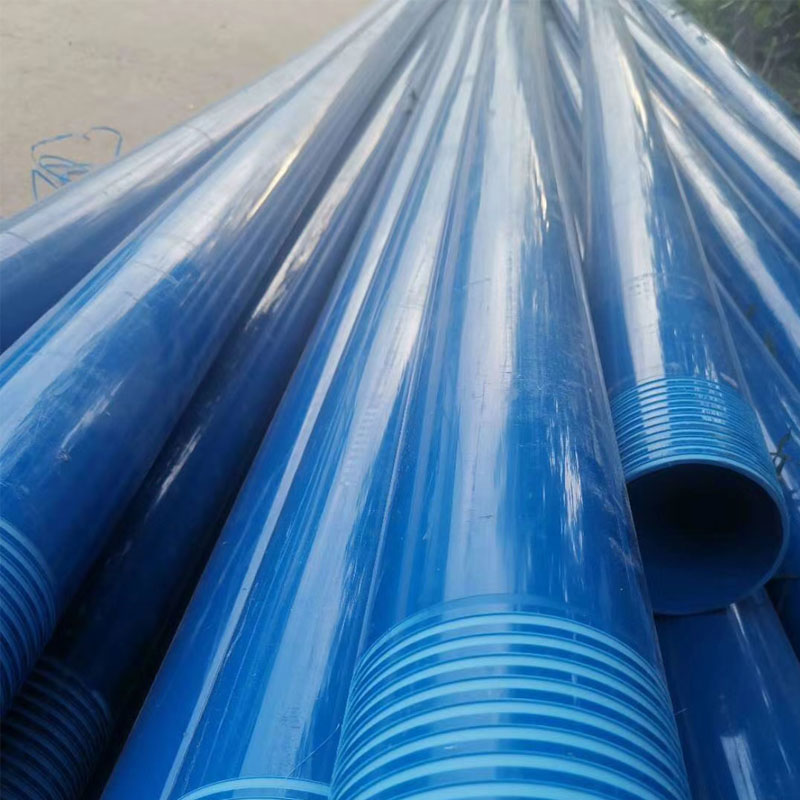Dec . 10, 2024 20:57 Back to list
PPR Pipe Applications and Benefits in Industrial Factory Settings
The Significance of PPR Pipes in Factory Applications
Polypropylene Random Copolymer (PPR) pipes have emerged as a popular choice in industrial applications, particularly within factories. These pipes, renowned for their durability, flexibility, and resistance to corrosion, offer an array of advantages that can significantly enhance operational efficiency in various manufacturing processes. This article explores the characteristics, advantages, and applications of PPR pipes in factory settings.
Understanding PPR Pipes
PPR pipes are made from a thermoplastic polymer known as polypropylene, which is expanded through the copolymerization process. This method imparts specific characteristics to the pipes, making them suitable for a range of applications. PPR pipes are generally green or white and can be manufactured in a variety of diameters, allowing them to cater to different flow requirements.
Key Advantages of PPR Pipes
1. Corrosion Resistance One of the standout features of PPR pipes is their exceptional resistance to corrosion. Unlike metal pipes that can rust and degrade over time, PPR pipes remain unaffected by acidic and alkaline substances. This property makes them particularly useful in factories where chemical exposure is a concern.
2. Temperature Resistance PPR pipes can withstand high temperatures, often reaching up to 95°C (203°F) for hot water applications. This thermal stability makes them ideal for factories involved in processes that require hot water, such as food and beverage manufacturing.
3. Lightweight and Easy to Handle The lightweight nature of PPR pipes facilitates easier handling and installation. This advantage reduces labor costs and allows for faster project completion, which is crucial in an industrial environment where time is often of the essence.
4. Reduced Noise and Vibration PPR pipes have excellent sound insulation properties, making them suitable for environments where noise reduction is necessary. This characteristic is especially important in factories aiming to maintain a safe and comfortable working environment for employees.
5. Long Lifespan PPR pipes have a long operational lifespan, often exceeding 50 years with proper installation and maintenance. Their durability minimizes the need for frequent replacements, resulting in significant cost savings over time.
ppr pipe used for factory

6. Environmental Friendliness Being recyclable, PPR pipes contribute to sustainability efforts within the manufacturing sector. Their production emits fewer pollutants compared to traditional piping materials, aligning factories with green initiatives and corporate social responsibility goals.
Applications of PPR Pipes in Factories
The versatility of PPR pipes allows them to be utilized in diverse applications within factory settings
- Water Supply Systems PPR pipes are commonly used for the distribution of cold and hot potable water in factories. Their resistance to scale build-up ensures consistent water flow and quality over the years.
- Compressed Air Systems Thanks to their high pressure tolerance, PPR pipes are also employed in compressed air systems that are pivotal in manufacturing processes, aiding in machinery operation and product transportation.
- Chemical Transport The ability to withstand corrosive materials makes PPR pipes a preferred choice for transporting chemicals safely. Factories engaged in chemical processing benefit from their reliability in hazardous conditions.
- Cooling Systems In manufacturing plants that require cooling systems, PPR pipes effectively transport chilled water or coolant fluids, ensuring temperature control throughout the operation.
- Hydronic Heating Systems Many factories utilize hydronic heating to maintain optimal temperatures in workspaces. PPR pipes integrated into these systems provide efficient and effective heating solutions.
Conclusion
In conclusion, PPR pipes represent a significant advancement in piping technology for factories, offering numerous advantages ranging from durability to environmental friendliness. Their unique properties make them an ideal choice for various applications, improving operational efficiencies and reducing long-term costs. As manufacturing processes evolve, the adoption of reliable materials like PPR pipes will be essential in maintaining competitive edge and sustainability in the industrial sector. Embracing these innovations will ultimately lead to enhanced productivity and a safer, more efficient working environment.
-
High-Quality PVC Borehole Pipes Durable & Versatile Pipe Solutions
NewsJul.08,2025
-
High-Quality PVC Perforated Pipes for Efficient Drainage Leading Manufacturers & Factories
NewsJul.08,2025
-
High-Quality PVC Borehole Pipes Durable Pipe Solutions by Leading Manufacturer
NewsJul.08,2025
-
High-Quality PVC Borehole Pipes Reliable PVC Pipe Manufacturer Solutions
NewsJul.07,2025
-
High-Quality UPVC Drain Pipes Durable HDPE & Drain Pipe Solutions
NewsJul.07,2025
-
High-Quality Conduit Pipes & HDPE Conduit Fittings Manufacturer Reliable Factory Supply
NewsJul.06,2025

